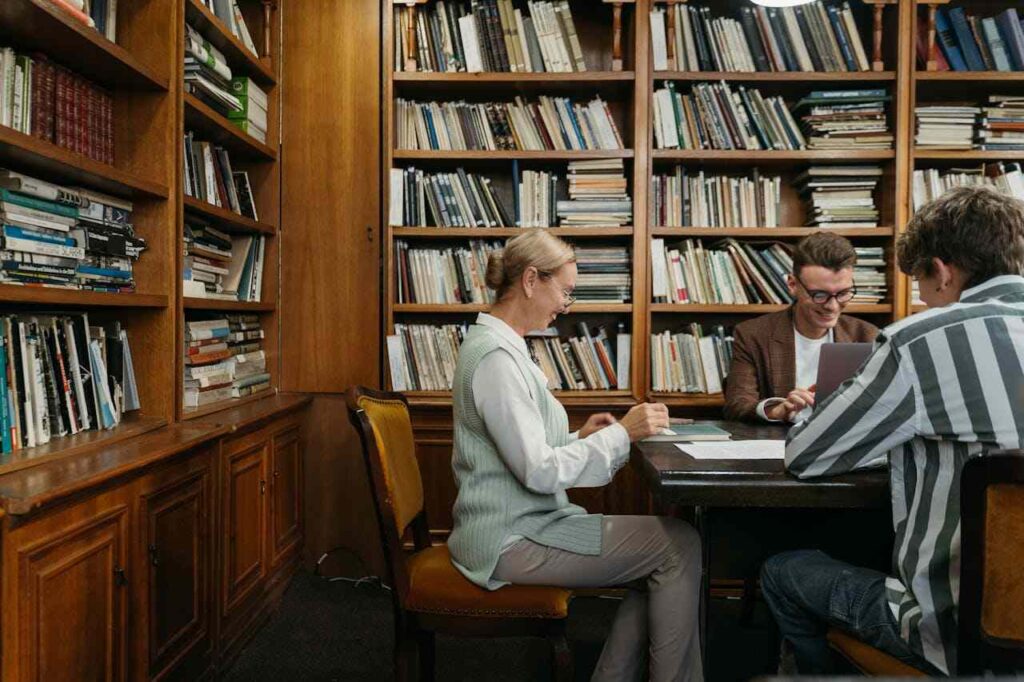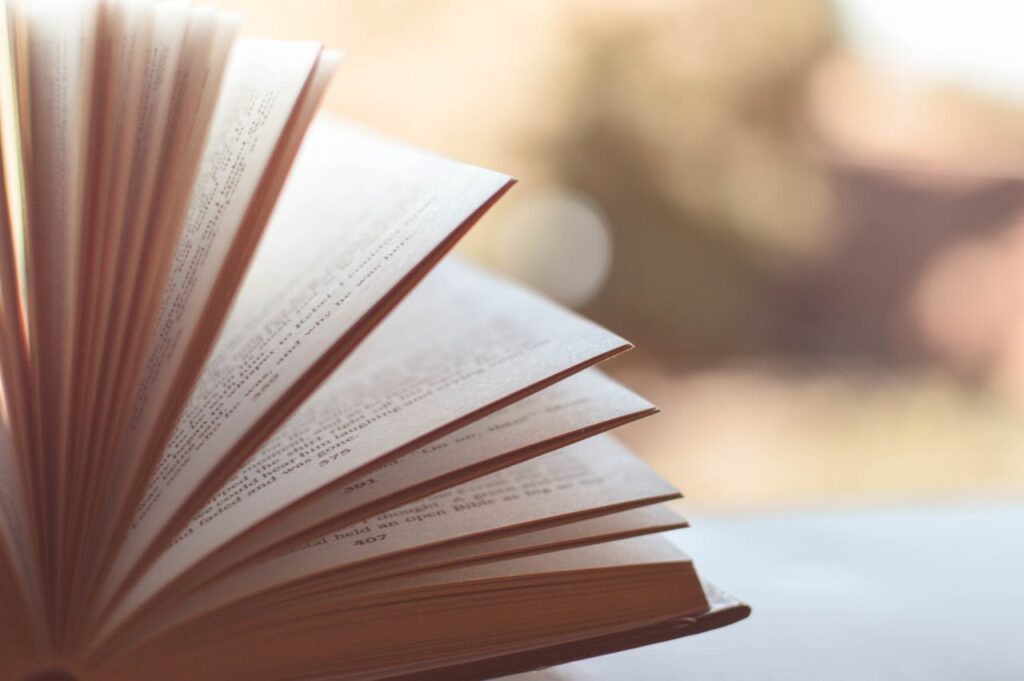Hello IB scholars! As someone deeply immersed in the International Baccalaureate (IB) curriculum for years, I’ve mastered the challenging IB DP English A course. Today, I’m excited to share my insights into writing an outstanding English A extended essay. This assignment, a cornerstone of the IB diploma, requires creativity, critical thinking, and a strategic approach. Today, I will give you some ideas for English A extended essay topics.
Understanding the English A Extended Essay
First, it’s important to understand what makes the English A Extended Essay different. This 4,000-word research project offers you a unique opportunity to investigate a literary topic of personal interest. In line with general IB criteria, your essay should demonstrate a comprehensive analysis, deep understanding, and critical approach to your chosen literary works. Remember, your passion for the topic will be the light that guides your research.
The English A extended essay stands as a formidable component of the IB Diploma Programme, offering students an unmatched opportunity to dig into literary topics that ignite their intellectual curiosity. According to the general IB criteria, this assignment requires a comprehensive analysis, a deep understanding, and a critical approach to your selected literary works. It’s a unique platform where your passion fuels your research and enlightens your pathway with insights. Now, let’s highlight a few important points:
- Choose a topic that resonates with you. Your engagement with the subject matter can significantly influence your essay’s depth of inquiry and the quality of analysis.
- It’s imperative not just to describe or summarize the literary works but to engage with them critically. Analyze themes, characters, narrative techniques, and the socio-cultural context to offer insightful perspectives.
- The IB values original thought and novel analysis. Approach your topic from unique angles that reflect your creativity and intellectual independence.
- A high-quality extended essay is underpinned by thorough and effective research. Demonstrate your ability to source relevant information, evaluate its credibility, and integrate it coherently into your argument.
- A well-organized essay with a clear introduction, body, and conclusion enhances readability and demonstrates your ability to present complex ideas logically.
Moreover, the reflection sessions, part of the extended essay process, are invaluable. They offer you a chance to pause, assess your progress, and refine your thoughts with your supervisor’s guidance.
Need help deciding between English A and English B? Our detailed comparison will guide you through the essential differences.
English A Extended Essay Topics and Research Questions

Here are topic ideas, along with research questions, that can spark the curiosity of any IB student passionate about English literature. Each topic is written to inspire and provoke deep analytical thought, drawing on various texts and literary forms:
- The Evolution of the Tragic Hero in Shakespearean Drama. How has the tragic hero’s character evolved across Shakespeare’s works from “Hamlet” to “Macbeth”?
- The Role of Setting in Creating Atmospheric Tension in Gothic Novels. How does the setting contribute to the development of atmospheric tension in Mary Shelley’s “Frankenstein” and Bram Stoker’s “Dracula”?
- Feminism in Early 20th Century Literature. In what ways do the novels of Virginia Woolf and D.H. Lawrence reflect feminist ideas of their time?
- The Depiction of War in Postmodern Literature. How do postmodern novels depict the concept and consequences of war differently than modernist literature?
- The Influence of Culture on Magical Realism in Latin American Literature. How is magical realism influenced by Latin American cultural elements in the works of Gabriel García Márquez and Isabel Allende?
- Comparative Analysis of Heroism in Classic vs. Modern Epic Tales. How does the portrayal of heroism in Homer’s “Odyssey” compare to that in J.R.R. Tolkien’s “The Lord of the Rings”?
- Narrative Techniques in Stream of Consciousness Writing. What narrative techniques are employed in the stream-of-consciousness writing of James Joyce’s “Ulysses” and Virginia Woolf’s “Mrs. Dalloway,” and how do they affect the reader’s understanding of the characters?
- The Role of Nature in Romantic Poetry. How do William Wordsworth and Samuel Taylor Coleridge use nature as a motif in their poetry, and what does it signify about their perspective on the human experience?
- Dystopian Visions: A Reflection of Societal Fears. How do Aldous Huxley’s “Brave New World” and George Orwell’s “1984” reflect societal fears of their respective times?
- The Intersection of Race and Gender in African American Literature. How do Toni Morrison’s “Beloved” and Maya Angelou’s “I Know Why the Caged Bird Sings” research the intersection of race and gender?
- The Literary Research of Mental Illness. How is mental illness depicted and researched in Sylvia Plath’s “The Bell Jar” and Ken Kesey’s “One Flew Over the Cuckoo’s Nest”?
- Satire and Social Critique in the Novels of Charles Dickens. How does Charles Dickens employ satire as a tool for social critique in “Hard Times” and “Oliver Twist”?
- The Concept of the Anti-hero in Modern Literature. How is the anti-hero character archetype developed in the works of Bret Easton Ellis and Chuck Palahniuk?
- Mythology in Modern Fantasy Literature. In what ways do Rick Riordan’s “Percy Jackson” series and J.K. Rowling’s “Harry Potter” series draw upon classical mythology to develop their respective narratives?
- Identity and Exile in Post-Colonial Literature. How do themes of identity and exile manifest in the post-colonial literature of Chimamanda Ngozi Adichie’s “Americanah” and Jhumpa Lahiri’s “The Namesake”?
- The Intersection of Technology and Humanity in Science Fiction. How do Philip K. Dick’s “Do Androids Dream of Electric Sheep?” and Isaac Asimov’s “I, Robot” depict the relationship between technology and humanity?
- The Psychological Depth of Characters in Russian Novels. How do Fyodor Dostoevsky’s “Crime and Punishment” and Leo Tolstoy’s “Anna Karenina” show the psychological depth of their characters?
- The Bildungsroman and Its Evolution in English Literature. How has the bildungsroman genre evolved from Charles Dickens’s “Great Expectations” to J.D. Salinger’s “The Catcher in the Rye”?
- Portrayals of Colonialism and Its Aftermath in African Literature. How do Chinua Achebe’s “Things Fall Apart” and Ngũgĩ wa Thiong’o’s “A Grain of Wheat” portray the effects of colonialism on African societies?
- The Literary Representation of LGBTQ+ Identities. How do contemporary novels represent LGBTQ+ identities, particularly in the works of Jeanette Winterson and David Levithan?
- Existentialism in the Works of Albert Camus and Franz Kafka. How do Albert Camus’ “The Stranger” and Franz Kafka’s “The Trial” reflect existentialist themes?
- The Influence of Historical Events on American Literature. How have significant historical events, such as the Great Depression and the Civil Rights Movement, influenced American literature, particularly in the works of John Steinbeck and James Baldwin?
- Magic and Myth in Indigenous Storytelling. How is magic used to convey cultural myths and values in the storytelling traditions of Indigenous peoples, as seen in the works of Leslie Marmon Silko and Thomas King?
- Eco-criticism in Contemporary Poetry. How do contemporary poets like Mary Oliver and Wendell Berry use their work to address environmental issues through an eco-critical lens?
- The Role of Women in Renaissance Literature. How do the roles and depictions of women in Renaissance literature, particularly in the works of William Shakespeare and Christopher Marlowe, reflect the societal attitudes of the time?
- Narratives of Displacement and Migration in Modern Novels. How do novels like Mohsin Hamid’s “Exit West” and Valeria Luiselli’s “Lost Children Archive” depict the experiences of displacement and migration?
- The Revival of Fairy Tales in Modern Literature. How do authors like Angela Carter and Neil Gaiman reinterpret classic fairy tales for modern audiences?
- Post-Apartheid South African Literature. How do post-apartheid South African authors like J.M. Coetzee and Nadine Gordimer discuss themes of identity, reconciliation, and memory in their works?
- The Tragicomedy Genre in Playwriting. How do modern plays like Samuel Beckett’s “Waiting for Godot” and Tom Stoppard’s “Rosencrantz and Guildenstern Are Dead” exemplify the tragicomedy genre?
- Literary Depictions of Utopias and Dystopias. How do utopian and dystopian themes manifest in literature, particularly in Thomas More’s “Utopia” and Suzanne Collins’ “The Hunger Games”?
- Duality of Human Nature in Gothic Literature. How is the duality of human nature researched through Gothic elements in Robert Louis Stevenson’s “Strange Case of Dr Jekyll and Mr Hyde” and Oscar Wilde’s “The Picture of Dorian Gray”?
- The Portrayal of Social Inequality in Dickensian London. How does Charles Dickens critique social inequality and class struggles in Victorian London through “Bleak House” and “Oliver Twist”?
- The Impact of Cultural Hybridity on Identity in Diaspora Literature. How do authors like Zadie Smith in “White Teeth” and Chimamanda Ngozi Adichie in “Americanah” depict the impact of cultural hybridity on the identity of diaspora individuals?
- Narrative Innovation in Post-Colonial African Novels. In what ways do post-colonial African novels, such as Ben Okri’s “The Famished Road” and Yvonne Vera’s “Butterfly Burning,” innovate traditional narrative structures to convey themes of memory, history, and identity?
- The Evolution of the Female Protagonist in British Novels. How have female protagonists evolved in British literature from Jane Austen’s “Pride and Prejudice” to Hilary Mantel’s “Wolf Hall”, particularly in their agency and complexity?
- Symbolism in Modern American Poetry. How is symbolism employed in the works of Sylvia Plath and Langston Hughes to address themes of identity and societal expectations?
- Postmodern Elements in Contemporary Graphic Novels. How do graphic novels like Alan Moore’s “Watchmen” and Neil Gaiman’s “Sandman” incorporate postmodern elements to redefine traditional storytelling?
- The Portrayal of Existentialism in European Theatre. How is existentialism portrayed in the plays of Samuel Beckett and Jean-Paul Sartre?
- Evolving Feminine Identities in Post-War Japanese Literature. How do female authors like Banana Yoshimoto and Yoko Ogawa depict women’s identities in post-war Japanese society?
- The Use of Allegory in Medieval English Literature. How do Geoffrey Chaucer’s “The Canterbury Tales” and Edmund Spenser’s “The Faerie Queene” use allegory to comment on societal norms and values?
- Historical Contexts in the Novels of Hilary Mantel. How does Hilary Mantel use historical contexts to enhance character development and plot in “Wolf Hall” and “Bring Up the Bodies”?
- Narrative Complexity in South Asian Novels. How do novels by Salman Rushdie and Arundhati Roy use complex narrative structures to enhance themes of cultural conflict and identity?
- Ecofeminism in Contemporary Literature. How do Margaret Atwood’s “The Handmaid’s Tale” and Barbara Kingsolver’s “Prodigal Summer” weave ecofeminist themes into their narratives?
- The Influence of the Supernatural in Victorian Novels. How do Charlotte Brontë’s “Jane Eyre” and Charles Dickens’ “A Christmas Carol” incorporate supernatural elements to influence themes and character development?
- Challenges of Translation in World Literature. How do translated works from authors like Haruki Murakami and Gabriel García Márquez challenge the reader’s interpretation due to cultural and linguistic differences?
- Modern Retellings of Ancient Myths. How do contemporary authors like Madeline Miller in “Circe” and Pat Barker in “The Silence of the Girls” reinterpret ancient myths?
- The Role of the Anti-Hero in British Dramas. How do modern British dramas, such as those by Jez Butterworth and Martin McDonagh, depict the role of the anti-hero in contemporary society?
- The Representation of Mental Health in Young Adult Literature. How is mental health represented in young adult literature by authors like John Green and Ned Vizzini?
- Political Satire in 20th-Century British Literature. How do George Orwell’s “Animal Farm” and Aldous Huxley’s “Brave New World” use political satire to critique their respective societies?
- Cross-Cultural Influences in Modernist Literature. How do T.S. Eliot’s “The Waste Land” and Ezra Pound’s “Cantos” reflect cross-cultural influences and contribute to the development of modernist poetry?
These topics can be a foundation for your extended essay and invite you to investigate literature through various perspectives, encouraging a deeper understanding of themes, techniques, and cultural contexts. Remember, a well-chosen topic is the first step to a rewarding research experience.
Topics to Read:
- IB Extended Essay Topics: Business and Management
- IB Extended Essay Topics: Physics
- IB Extended Essay Topics: Economics
- IB Extended Essay Topics: Sports and Health Science
- IB Extended Essay Topics: Geography
- IB Extended Essay Topics: Global Politics
- IB World Studies Extended Essay Ideas
- IB Results Remark Procedure
- How to Make Awesome IB Notes?
- What Is the New IB Economics Syllabus?
- IB Oral Presentation Ideas and Examples
- 70+ CAS Project Ideas for IB Students
- World of IB Acronyms: From EE to TOK, Making Sense of It All
- Benefits of Pursuing a Second Language at IB Higher Levels
Don’t let the stress of the IB curriculum hold you back.
Are you struggling to come up with topic suggestions for your IB Extended Essay? Or do you need help with Internal Assessment?
Our experienced writers can help you choose the perfect topic and assist you with any assignment.
You can order an Extended Essay tailored to your specific subject and requirements.
Our experienced IB writers are always ready to help.
Simply click:

Conclusion
In conclusion, working on your English A extended essay is a path of intellectual growth. In my experience, embracing this challenge with enthusiasm and strategic planning will lead to academic success and a deeper appreciation for the power of literature. So grab your pen (or laptop) and let your literary research begin! And if you need help writing an extended essay, just contact our IB experts.




